
Fudbalski klub Crvena zvezda, commonly known as Red Star Belgrade in English-language media, is a Serbian professional football club based in Belgrade, and a major part of the Red Star multi-sport club.

The Czechoslovakia national football team was the national football team of Czechoslovakia from 1920 to 1993. The team was controlled by the Czechoslovak Football Association, and the team qualified for eight World Cups and three European Championships. It had two runner-up finishes in World Cups, in 1934 and 1962, and won the European Championship in the 1976 tournament.
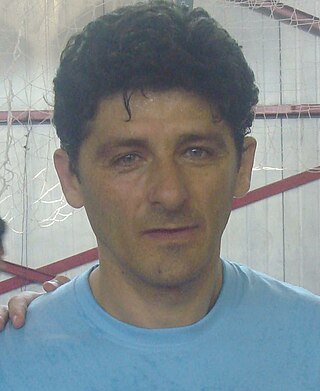
Miodrag Belodedici is a Romanian former professional footballer who played as a sweeper.
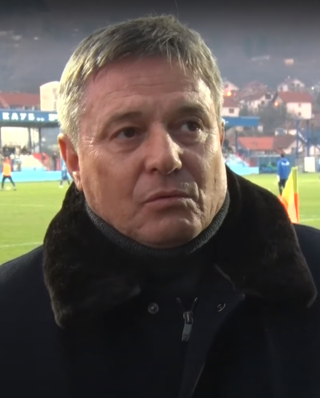
Dragan Stojković, also known by the nickname Piksi (Пикси), is a Serbian former footballer who played as a midfielder, and the current manager of the Serbia national team. Widely regarded as one of the greatest players to ever play for the extinct Yugoslavia national team.
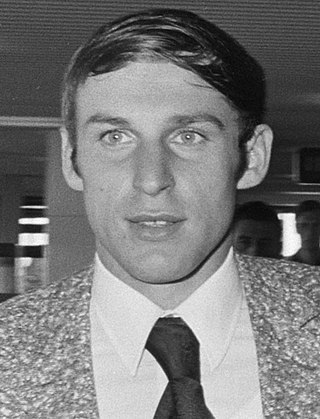
Dragan Džajić is a Yugoslav former footballer from Serbia.
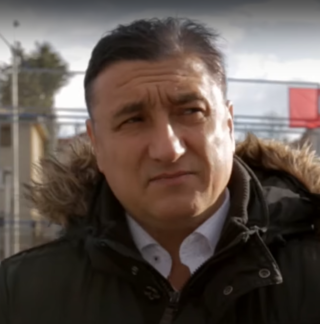
Darko Pančev is a Macedonian former professional footballer who played as a forward. He most notably played for FK Vardar and Red Star Belgrade.

The 1990–91 European Cup was the 36th season of the European Cup, a tournament for men's football clubs in nations affiliated to the Union of European Football Associations (UEFA). It was won for the first time by Red Star Belgrade on penalties in the final against Marseille; both were first-time finalists. This was only the second time that an Eastern European side had won the competition, after Steaua București of Romania in 1986. It was also the last tournament to be solely knock-out based, with a group stage added for the next season. Red Star won the tournament as the only Yugoslavian club shortly before the breakup of Yugoslavia. This was also the last season to feature a team from East Germany, since the East and its West counterpart reunified in October 1990.
The 1990–91 Yugoslav First League season was the 45th season of the First Federal League, the top level association football competition of SFR Yugoslavia, since its establishment in 1946. The title was won by Red Star Belgrade, the club's 18th in its history. It also turned out to be the last season in which teams from SR Croatia and SR Slovenia participated. In 1991, these states left Yugoslavia and created their respective leagues.
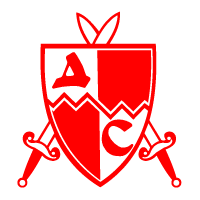
Delije is a name referring to the supporters of various sports clubs that compete under the Red Star Belgrade multi-sport club banner. The plural of the singular form delija (делија)—which in Serbian generally signifies a courageous, brave, strong, tough, or even handsome young man—a rough English translation of Delije is "Heroes", "Braves", or "Studs".
Stevan Stojanović is a retired Serbian football goalkeeper best known for captaining Red Star Belgrade side which won the 1991 European Cup Final.
Sport in Serbia plays an important role, and the country has a strong sporting history. The most popular sports in Serbia are football, basketball, tennis, volleyball, water polo and handball.

The 1991 European Super Cup was the 16th European Super Cup, an annual football match organised by UEFA and contested by the winners of the previous season's European Cup and Cup Winners' Cup competitions. The match was played on 19 November 1991 and featured the 1990–91 European Cup winners, Red Star Belgrade, and Manchester United, winners of the 1990–91 Cup Winners' Cup. It was meant to be played over two legs, but due to the political unrest in Yugoslavia at the time, UEFA decided that only the leg at Manchester United's home, Old Trafford, would be played.

Sportski klub Jugoslavija, commonly known as SK Jugoslavija was a Serbian football club based in Belgrade. It was originally formed as SK Velika Srbija in 1913 and changed its name to SK Jugoslavija in 1919. They were among the most popular Serbian and Yugoslav clubs, and they were nicknamed as "Crveni" because of their red shirts, in opposition to their greatest rivals BSK, who wore blue and were known as "Plavi". Until 1941 the sports society Jugoslavija, beside football, also included sections for athletics, cycling, winter sports, basketball, boxing, wrestling, swimming, and table tennis.
Zoran "Moka" Slavnić is a Serbian retired professional basketball player and coach. He played with Crvena zvezda and with Partizan. One of the best European point guards of all time, he was named one of FIBA's 50 Greatest Players in 1991, and he became a FIBA Hall of Fame player in 2013.
List of Red Star Belgrade's official international matches from 1956–57 season until today.
The 1967–68 Mitropa Cup was the 28th season of the Mitropa football club tournament. It was contested by sixteen clubs from 15 European cities and 5 countries. Winner was Red Star Belgrade of Yugoslavia who beat Spartak Trnava of Czechoslovakia in the two-legged final 4–2 on aggregate.

The Rajko Mitić Stadium, previously known as Red Star Stadium, also known as Marakana, is a multi-use stadium in Belgrade, Serbia which has been the home ground of Red Star Belgrade since 1963. The stadium is located in Dedinje, municipality of Savski Venac.
The history of Red Star Belgrade's football team began with its establishment by a committee of Yugoslav Communists on 4 March 1945. Slobodan Penezić supervised the committee which founded Red Star, composed largely of communist veterans from World War II. This was in contrast to Partizan, as it was founded by high-ranking generals and members of the Yugoslav People's Army.
Vasilije "Vasa" Stojković was a Serbian sports journalist, basketball player and association football executive.
The 1990–91 season saw Olympique de Marseille compete in the French Division 1 as reigning champions as well as the 1990–91 Coupe de France and the 1990–91 European Cup.











